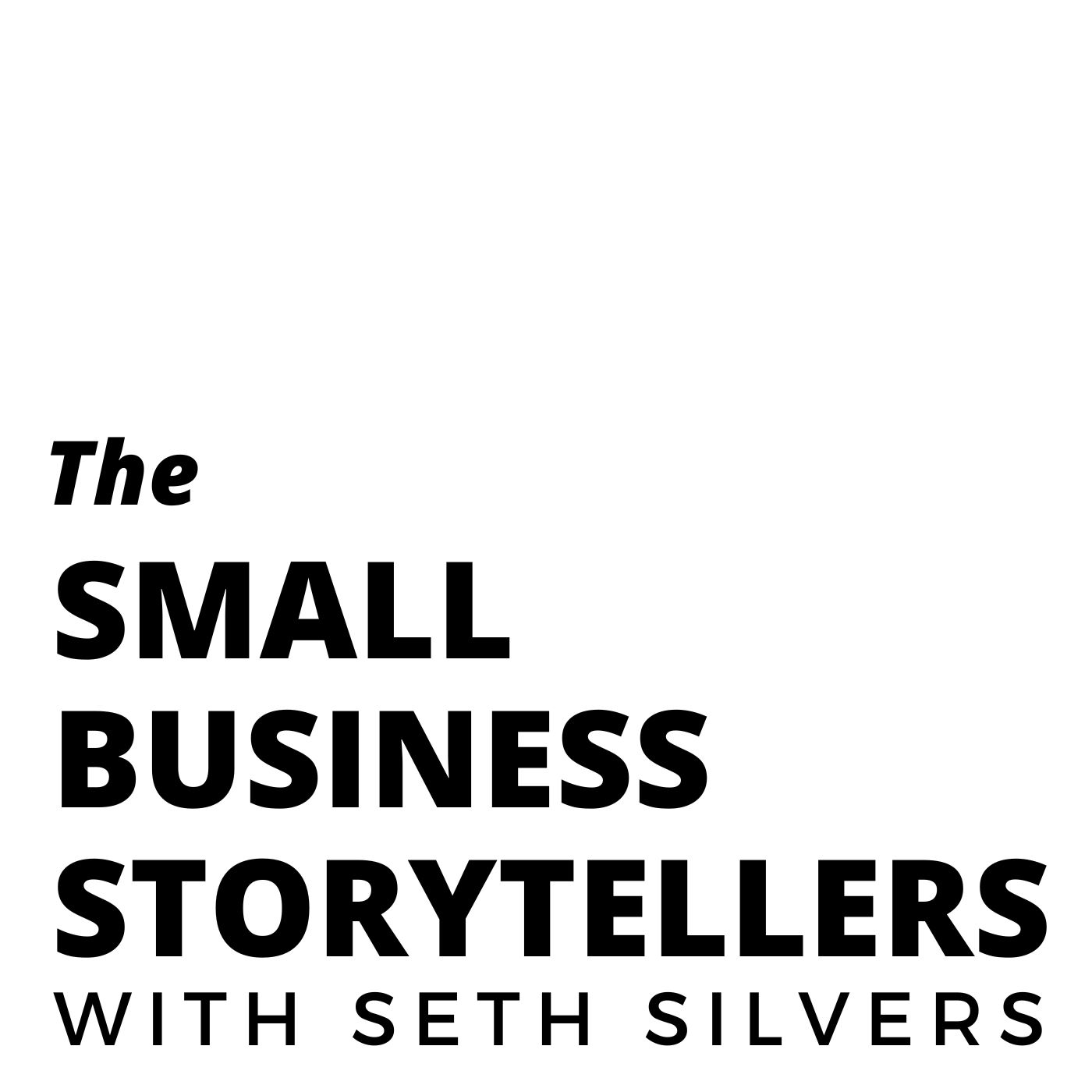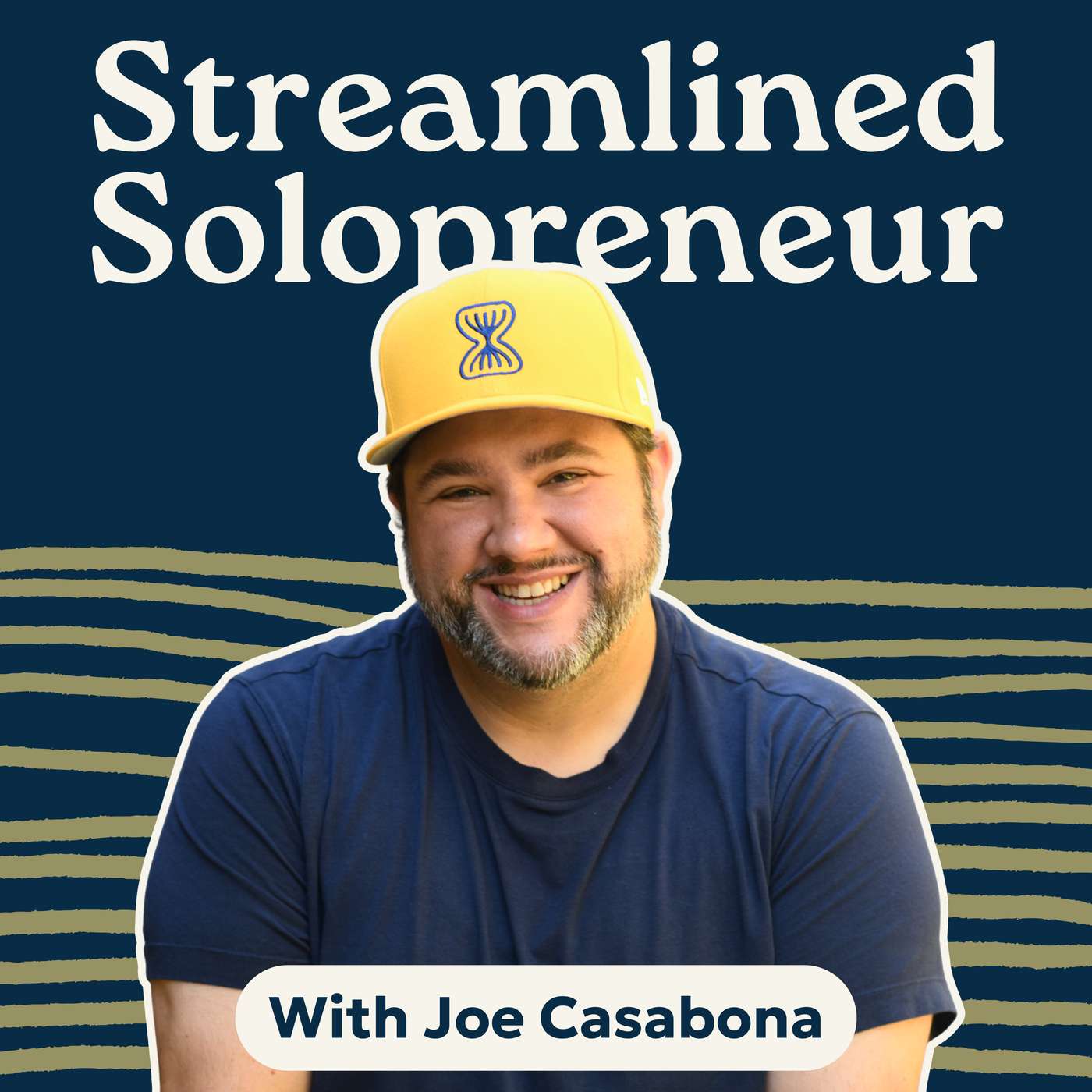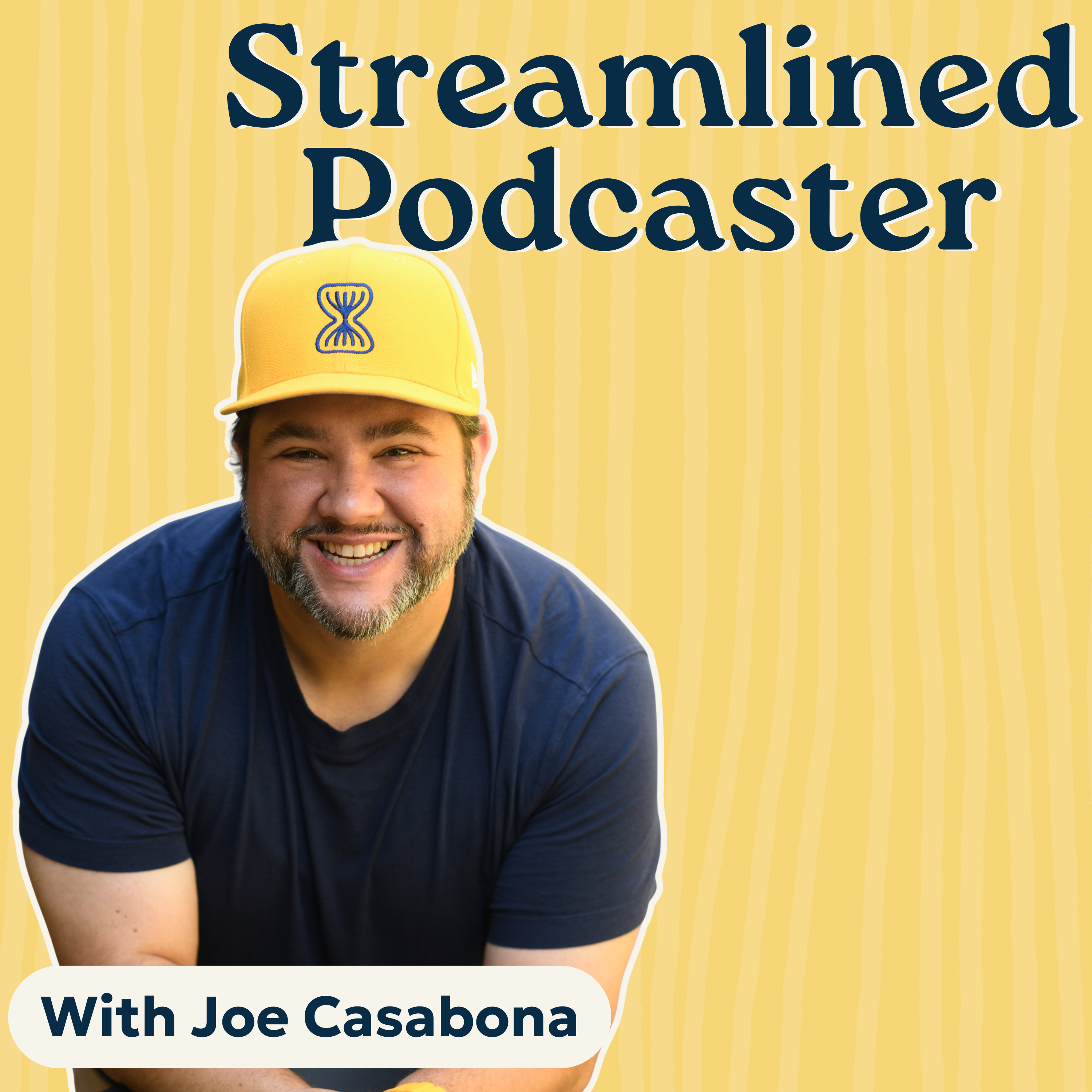
Podcasting Made Simple
Podcasting Made Simple is the premier podcast about podcasting! We’re here to help podcast guests and podcast hosts reach more listeners and grow their income so they can change more lives! Join Alex Sanfilippo and other podcasting industry experts as they share how you can level up on either side of the mic! (Show notes and resources: https://PodMatch.com/episodes)
Podcasting Made Simple
Crafting a Podcast Pitch That Gets a Yes | Suzanne Culberg
Most pitches from podcast guests wanting to be interviewed get ignored by hosts. Thankfully, there is a way you can create a pitch that gets hosts to say "yes" to having you on the show! In this episode, Suzanne Culberg shares how to personalize your pitch, avoid common mistakes, and craft a message that makes hosts want you on their podcasts. Get ready to make your guesting pitches impossible to ignore!
MORE FROM THIS EPISODE: HTTPS://PODMATCH.COM/EP/333
Chapters
00:00 Introduction to Podcast Pitching
01:27 Researching Your Target Podcast
03:20 Personalizing Your Pitch
04:46 Focusing on the Host's Audience
06:34 Making It Easy for the Host
08:27 Demonstrating Preparedness and Quality
10:39 Transparency in Representation
11:08 The Importance of Follow-Up
Takeaways
There's no one right way to pitch a podcast.
Research how the host wants to be pitched.
Use a personal greeting in your pitch.
Make the pitch relevant to the host's audience.
Suggest relevant topics for discussion.
Demonstrate that you have quality audio equipment.
Include examples of previous podcast appearances.
Thank the host for their consideration.
Be transparent if someone else is pitching for you.
Follow up thoughtfully after your initial pitch.
MORE FROM THIS EPISODE: HTTPS://PODMATCH.COM/EP/333
PodMatch has officially launched a podcast network for independent interview-based podcasts! To apply to be part of the network, please visit https://PodMatch.com/network and press the "Join Network" button in the top center of the screen. While you're there, be sure to check out some of the incredible shows in the network!
You're listening to Podcasting Made Simple. Hello and welcome to Create a Podcast Pitch That's an Easy Guess. My name's Suzanne Kohlberg and I just want to say at the outset that there's no one right way to pitch a podcast. This talk is based on my personal experience having been a guest on over 200 podcasts and having hosted over 200 guests on my own podcasts.
What I'm sharing is very much swayed by my personal experience and preferences, but I'm not speaking on behalf of all podcasters. Before we get into it, some things to consider. There are millions of podcasts in the world, literally millions. Some drop an episode per month, some drop an episode every single day, and many drop an episode once per week. And popular podcasts will receive
many pitches each week. So personally, I can receive as many as 40 podcast pitches per week for my show. And I currently release one episode per week. So 40 pitches, one spot. So you want your pitch to stand out. So the purpose of today's talk is to give you some suggestions to make your pitch stand out so that hosts want to say yes to you. And here are 10 elements.
that I believe will help you make your podcast stand out. Number one, spend a few minutes researching how they want to be pitched. And a top tip for this, check the show notes of the episodes of their show or go to their website and see if they have a podcast page. Cause many podcasts will have in the show notes, want to be a guest? Click here or on their website. Want to be a guest? Apply here. So if you go to the.
trouble of pitching the person in the way that they want to be pitched, you already got more of an in than if you just do a DM or something like that. And if you can't find, if you spend a few minutes searching and you can't find how the person wants to be pitched, then I'd recommend sending them an email over a DM. Part two, tip two, use a personal greeting. Use the host's name. If I get a pitch that says, dear sir, madam, I don't read any further.
I also don't like the pictures that say, hi, the Nope Coach. Like my name of my podcast is the Nope Coach, but you know, take a moment and have a look at any of my show notes, any of my description, press play on an episode. Hi, this is Suzanne. Hi, Suzanne goes so far. Our name is our biggest anchor. So if you take a moment, instead of saying, dear Sir Madam or dear name of their show or have nothing and
actually put their name there, it's just so much more personal. And if it's a co-hosted show, put the names of both hosts, not just one of them. Tip number three, write something about them. So you can have a framework, you can have a pitch that you use and reuse, but if you start it with their name and some sort of personal anecdote,
You're so much more likely to get their attention than if it's a deersome Adam or just a paste that you have sent to, don't know how many other people. So some things that I have received that have really stood out for me. One person said, I have the same side quest t-shirt as you, and then sent me a selfie of them wearing it. I was like, oh my goodness. They immediately have my attention. People who have quoted me. I remember receiving one who I just listened to an episode. You said when people stop people pleasing.
Some people are not pleased. I'm going to have butchered that, but they quoted me and this is how that quote moved me or resonated with me to show that I've actually spent some time researching my show. More generic things, the contact page of your website is super fun, but something to show that they have done more than just copy paste this to everybody involved. Number four, I think this is one of the most important, but I'm probably going to say that they're all the most important.
But make the pitch about them and their audience, not about you. So many people lose pitches right here. They will have, you know, I'm, I've got a goal to get on a hundred podcasts or I've just written on a book and I'm on a book tour. These are great things for you. But as a podcast host, I say it with the utmost care that I don't care because I don't even know you yet. And you're telling me all about you.
It's like, if you go to someone's house and start like talking about all your own stuff, like it's why would it be beneficial for them to have you on their show? Now, if you've written a book, I'm not saying don't talk about the book. I've had so many authors on my show, but usually they pitch me something or other about, I've just written this book. have one. just wrote a book about self care. I know that your podcast is about boundaries. think it's really important.
part of self care to have boundaries. And I think we could talk in particular about this chapter on the show. Whereas other people, I've just written a book, I'm on a book tour. That's wonderful for you. I wish you all the luck, but I don't know you. And it sounds like you just wanted to come on my show to promote your stuff, which obviously is part of your business. And I get it, but it's not connecting. It's not saying how it's getting better for my audience.
I don't know about you, but I don't like listening to podcasts that are just basically the whole time trying to promote the thing. Like that's a no from me. So taking some time to talk about how whatever it is that you're doing is relevant to them and their audience, how you can tie it in. I have had copywriters on my podcast. I have had social media managers on my podcast. I have had things like the range of topics that you can tie into boundaries, like boundaries are in everything.
So when people take a moment to say how this that they're talking about ties to boundaries or saying no, it's just a match made in heaven. So whatever show that you're looking to get on, how is you being on that show of benefit to their audience? It'll be a game changer. Number five, also I'm going to say this is my favorite tip, but you know, they're all my favorite. Don't make them work for it. And what I mean by that is suggest relevant topics for their audience up to three.
So if you write, you know, dear Suzanne, I'm on a book tour, like you've probably already lost me, but you know, like go look at my page, go look at my profile. Here's my speaker sheet. You're making me work for it. Like, I don't know you. I've got 40 others in my inbox. Why am I going to take the time to go and read it? Whereas if you're like, here are some suggested topics and you give me like three topic titles, you know, how having really good SEO helps you.
have boundaries about the clients that you work with. How, you know, how having self care and putting yourself first helps you set boundaries in life, whatever it is, but like make the topics relevant to their audience. And then you can say, like, I'm open to other suggestions, but like, then you like, this is what this person likes to talk about. And this is how it's relevant to what I do as a guest, something that I suggest that you do something that I do set a timer for 10 minutes.
brainstorm, all the things that you could talk about, like literally get a Google doc, make a list of topics, have that saved. So when you're doing your pitching, you can look at that and go, how can I tie that to this parenting podcast? How can I tie this to this cryptocurrency podcast? How can I tie this to this boundaries podcast? You don't need to reinvent the wheel every time that you pitch. You've got a list and you just need to do some tweaking, suggest three, don't make them work for it. They can look through.
If you really want to spend some time, you can have a look at the things that they've talked about before and go, I noticed you haven't had anyone. Like when someone says to me, my show is over 450 episodes now. When someone says, I've looked through your past catalog. I haven't seen anyone talk about this. my goodness. They've taken so much effort. They're almost guaranteed a yes. Or I listened to your episode about this, how I think I can add to the conversation. Gold, absolute gold. Step number six.
Let them know you have the gear. Podcasts care about audio quality. So you can say, I've got, insert name of microphone. I'm going to be in a quiet place. I, you know, I'm prepared for this if it's a yes. And this ties into point seven, include examples of previous podcasts you've been on. As I said, podcasters care about audio quality. If you give previous examples, then we can hit play and go, oh yeah.
that the sound is good or this may sound insulting, but you know, can you carry out a sentence? Sometimes the pitch looks amazing. It looks incredible. And then you start talking to the person and it's like, someone else written their pitch? Because this, this doesn't line up with that. So if you give examples, here's a couple of podcasts I've been on. So you can hear my audio quality and the type of things I talk about. Like you're
say they have to listen to it all, but I know that I will hit play and have a listen for a few seconds. I'm checking for the audio quality and I'm checking, can they carry out a sentence? Point number eight, thank them for their consideration. As I said, they might be having 40 of these per week. If you say something like, you whether or not you choose to proceed, thank you so much for your consideration. It means so much. Point number nine, if you're getting your VA or team member or someone else to pitch on your behalf,
Like I am not against this. Some podcasters are totally opposed and they'll be like, I will not respond to a third party pitch, but I'm not opposed to it, but make sure that you're transparent about it. Very recently, I had an example where I was having somebody on my show. They said, hi, this is such and such. And they suggested something they could talk about. I wrote back and said, I'm Australian based.
Is this relevant to my topic because I have a global audience and you're US based? And they wrote back and said, yep, it's global. When I had this person on my show, like on the day when we turned up in the zoom room, they're like, I don't know if this is relevant because I'm in the US and you're in Australia. I was not impressed because I thought I had spoken to them already. They said, this is such and such. And it was actually their team.
So if you are having someone act on your behalf, make sure they're transparent. Hi, this is on behalf of, and if the host asks questions, get them to check with you before going ahead because then you're just saving everybody's time, energy and frustration. And the final point is number 10, follow up. As I said, people are busy. They get multiple pictures per week and don't just follow up with, here's a bump.
or just forwarding it again or sending the same thing you sent last week. Do a sentence and saying, you hi, I know that you're busy, just wanted to check back in or, you know, I know that you're busy. Thank you so much for your consideration. Sending this again, just in case you haven't had a chance to get to it or here's some different topics that I could also talk about if none of the ones previously stood out when someone says to me, you know, I know that you're busy or whatever. I'm just like, my shoulders relaxed. I'm like, ugh.
Thank you. Like, yes, I am. And I'm going to give you some more time now because you've come back. When they just go bump or something like that, I don't know. I find personally, that's a little bit rude, but someone who writes and says, know that you're busy just sending this again. Here's some other topics. If the first three I suggested didn't resonate, almost always they get on. Like the follow-up is so, so important. So I hope this has been helpful.
Like podcasting is such an amazing tool for connection, for networking, for meeting new people and spending a few moments, like spending a little bit of time on the front end to craft a pitch and to slightly personalize it each time and realize that there is a person on the other end reading this is so much more likely to get you in front of more audiences and get on more shows than just copy pasting the same thing to, you know, hundreds of podcasts and hoping for the best.
For more episodes, please visit podmatch.com forward slash episodes. Thank you so much for listening.
Podcasts we love
Check out these other fine podcasts recommended by us, not an algorithm.

Content Is Profit
BIZBROS
Win The Content Game
Deirdre Tshien - CEO & co-founder of Capsho, AI-powered Content Marketer (the fastest way to repurpose and market your expert content)
Fastlane Founders and Legacy with Jason Barnard: Personal Branding, AI Strategies, and SEO Insights
Jason Barnard Entrepreneur and CEO of Kalicube
Hacks and Hobbies with Junaid Ahmed
Junaid Ahmed
I Have A Podcast by Vinnie Potestivo
Vinnie Potestivo
The Small Business Storytellers with Seth Silvers
Seth Silvers
Streamlined Solopreneur: Tips to Help Business Owners Grow Without Burnout
Joe Casabona, Automations Builder
Insider Secrets to a Top 100 Podcast with Courtney Elmer | Podcasting Strategy for Business Growth
Courtney Elmer | PodLaunchHQ.comDo The Thing
Stacey Lauren
Tech Bytes - with Dan Hafner
Dan Hafner

